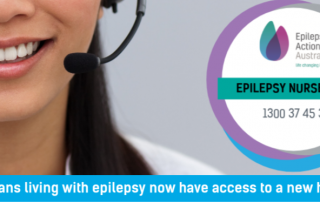Message from the IBE President (April 27, 2020)
Dear Friends, It has been just a month since I last wrote to bring you the news on some of the changes being introduced by IBE due to the Covid-19 pandemic. At that time, I mentioned that 2 million people had been affected around the world, with 135,000 deaths. In a matter of just four weeks, those numbers have risen by 50% with few real signs of an early exit in sight. It is likely that life will not return to normal for many more months with social distancing continuing in some form for the foreseeable future. Martin Brodie, IBE President I advised you at the end of last month that IBE was still open for business, albeit with some changes and restrictions, and this still holds true. We now have a dedicated section on our website www.ibe-epilepsy.org/covid-19-epilepsy-information/ with information on Covid-19 from sources, including WHO, FDA and EMA, as well as information specific to the virus and epilepsy. Some chapters have answered our invitation to share their information with us and these links are also available on the website. If you or your organisation has created material specific to Covid-19 and epilepsy, we would love to hear from [...]









